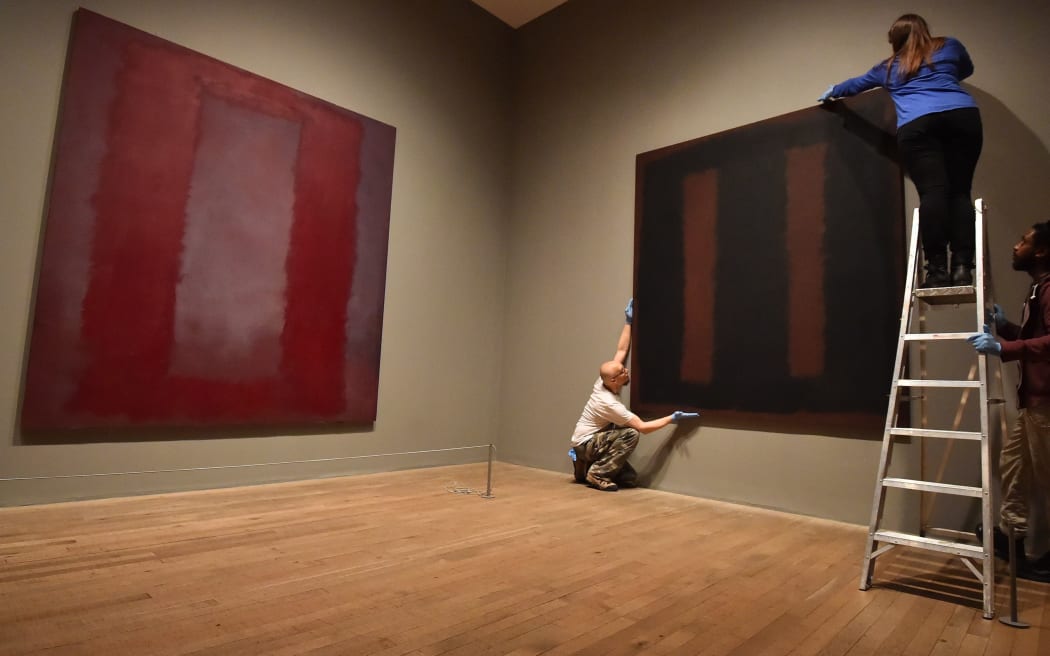A Mark Rothko painting vandalised at London's Tate Modern gallery 18 months ago is back on public view after the first-ever effort to strip graffiti ink off a major artwork without damaging the layers of paintwork.
Rothko's Black on Maroon was attacked in October 2012 by an aspiring artist who scrawled "Vladimir Umanets '12, A Potential Piece of Yellowism" in a lower corner.
One of the Seagram Murals commissioned for the Four Seasons restaurant in 1958, the painting was valued at £5 million to £9 million pounds by Sotheby's. Rothko donated it to the Tate in 1970.
Polish national Wlodzimierz Umaniec, also known as Vladimir Umanets, claimed the graffiti was a creative act to promote his artistic movement, Yellowism. He ended up pleading guilty to criminal damage and was jailed for two years in December 2012.

Mark Rothko's 'Black on Maroon' has gone back on display at the Tate Modern in London. Photo: AFP
Conservationists at the Tate Modern, one of the world's most popular galleries, said Rothko paintings were notoriously difficult to restore because of their complex paintwork, which is made up of layers of oils, pigments, resins, glues and egg.
A team of three conservationists and scientists spent nine months researching and testing about 80 solvents, six months removing the ink, and three months restoring the surface. The painting was put back on show in mid-May.
Tate director Nicholas Serota said the project had been far more successful than anyone dared hope at the outset, recalling the sickening feeling on being told of the attack.
The Tate Modern dedicates a room to Rothko, who is considered one of the 20th century's most important artists. His Seagram Murals were a shift from his earlier use of bright, intense colors for dark maroons, reds and black.
Mr Serota said security was reviewed after the attack but gave no details. He also brushed aside questions about the cost of restoration or how it affected the artwork's value. At Umaniec's trial, prosecution lawyer Gregor McKinley told the court the restoration would cost about £200,000.
Umaniec has apologised for his actions, saying he now realised this had not helped his movement, Yellowism, whose manifesto states it is "not art or anti-art".

